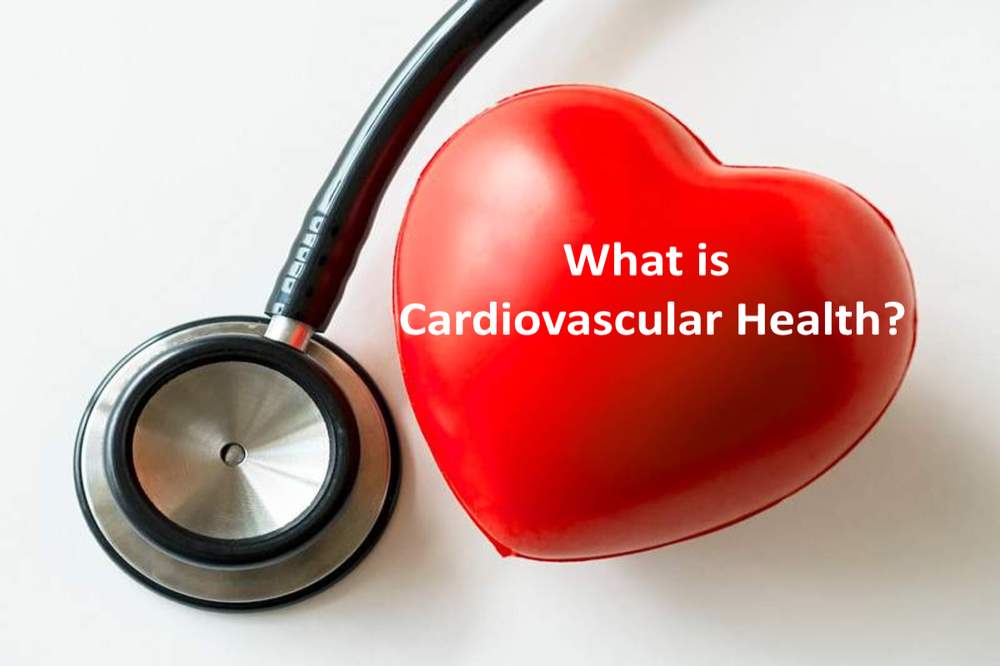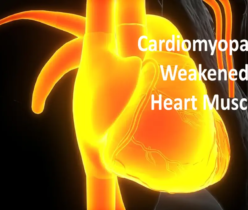Keeping your heart healthy is key. It’s not just about doctor visits. Exploring how to improve heart health can make your heart work better and lower your disease risk.
Heart health is essential for overall well-being. Many people in the U.S. face heart problems, but there are many ways to strengthen your heart naturally. Making small changes in your life can help a lot.
This guide will show you ten natural ways to boost your heart health. You’ll learn about food, exercise, managing stress, and more. These tips can help you keep your heart strong and healthy.
Key Takeaways
- Natural strategies can significantly impact heart health
- Diet plays a crucial role in cardiovascular wellness
- Regular exercise strengthens heart muscle
- Stress reduction improves overall heart function
- Small lifestyle changes create substantial long-term benefits
Understanding Heart Health and Its Importance
The human heart is amazing and needs our care. Taking care of our hearts is more than just doctor visits. It’s about living a healthy lifestyle to keep our hearts strong.
Common Risk Factors for Heart Disease
Knowing what can harm our hearts is key. Important risk factors include:
- High blood pressure
- Elevated cholesterol levels
- Obesity
- Smoking
- Sedentary lifestyle
- Diabetes
Key Indicators of Heart Health
Doctors check our heart health in different ways:
| Indicator | Healthy Range | Significance |
|---|---|---|
| Resting Heart Rate | 60-100 beats per minute | Lower rates often indicate better fitness |
| Blood Pressure | 120/80 mmHg | Indicates cardiovascular system efficiency |
| Cholesterol Levels | Total cholesterol | Prevents arterial blockage |
Impact of Lifestyle on Cardiovascular Wellness
Our lifestyle greatly affects our heart health. Daily choices directly influence cardiovascular performance. Eating right, exercising, managing stress, and sleeping well are key to a healthy heart.
“Your heart is a muscle. Treat it like one.” – Unknown Cardiologist
Understanding heart health helps us make better choices. This way, we can keep our hearts healthy for a long time.
How to Improve Heart Health Through Diet Modifications
Making a heart-healthy diet is a great way to keep your heart safe. What you eat is very important for your heart’s health. It helps prevent serious health problems.
Changing your diet can help your heart. Eating the right foods can lower bad cholesterol and fight inflammation. This supports your heart’s health.
Heart-Healthy Foods to Include Daily
- Leafy green vegetables rich in antioxidants
- Whole grains with complex carbohydrates
- Lean proteins like chicken and fish
- Nuts and seeds packed with essential nutrients
- Berries with high antioxidant content
Foods to Avoid for Better Heart Function
- Processed meats with high saturated fats
- Sugary beverages and desserts
- Refined carbohydrates
- Trans fats found in fried foods
- Excessive sodium and salt
Omega-3 Rich Sources for Cardiovascular Support
Omega-3 fatty acids are key for heart health. They fight inflammation and boost heart function.
“Food is the most powerful medicine for heart health.” – Nutrition Experts
Here are the best omega-3 sources:
- Salmon and fatty fish
- Chia seeds
- Flaxseeds
- Walnuts
- Sardines
By changing your diet wisely, you can make a heart-healthy plan. This plan supports your heart’s health for a long time.
Essential Cardiovascular Exercises for a Healthy Heart
Regular exercise is essential for keeping your heart healthy. Cardio exercises are key to making your heart strong. They help lower your risk of heart disease and boost your heart health.
There are many exercises good for your heart. Here are some top picks:
- Brisk Walking: A low-impact exercise for all fitness levels
- Swimming: A full-body workout that’s easy on your joints
- Cycling: Great for heart health and endurance
- Jogging: A high-intensity workout for those in better shape
“The heart is a muscle. You must exercise it to keep it strong and healthy.” – Dr. Michael Lim, Cardiologist
Experts say you need 150 minutes of aerobic workouts weekly. Start slow and get better over time. If you’re new, talk to a doctor first.
Cardio exercises strengthen your heart, but they also help with weight, stress, and mental health. Pick activities you like to keep exercising fun.
Managing Stress and Blood Pressure Naturally
Stress can harm your heart. Knowing how stress and blood pressure are linked can help keep your heart healthy.
Stress can affect your body’s balance, including your blood pressure and heart. Using stress-reducing methods can be very beneficial for your health.
Effective Stress Reduction Techniques
- Practice daily meditation for 15-20 minutes
- Engage in deep breathing exercises
- Try yoga or gentle stretching
- Maintain a consistent sleep schedule
- Connect with supportive friends and family
Natural Methods for Blood Pressure Control
Keeping blood pressure in check is a big job that requires a whole-body approach. What you eat is very important for your heart.
- Reduce sodium intake
- Consume potassium-rich foods
- Incorporate herbal remedies like hibiscus tea
- Practice regular physical activity
Importance of Regular Blood Pressure Monitoring
It’s key to watch your blood pressure. Use a good home monitor and check it often.
“Prevention is always better than cure when it comes to heart health.” – American Heart Association
Here are some tips for checking your blood pressure right:
- Measure at the same time daily
- Sit quietly for 5 minutes before testing
- Use the correct cuff size
- Keep a detailed log of your readings
By using these tips, you can help your heart stay healthy. This improves your overall well-being, too.
The Role of Sleep and Rest in Heart Health
Sleep is key to a healthy heart. It’s not just about feeling good. It’s also about keeping your heart in top shape.
Bad sleep can harm your heart. Adults need 7-9 hours of sleep each night. This helps your heart stay healthy.
“Sleep is the golden chain that binds health and our bodies together.” – Thomas Wakley
- Consistent sleep patterns regulate blood pressure
- Deep sleep helps reduce inflammation in cardiovascular systems
- Proper rest supports heart muscle recovery
It’s important to know how sleep affects your heart. Not sleeping well can raise stress hormones, which are bad for your heart.
| Sleep Duration | Heart Health Impact |
|---|---|
| Less than 6 hours | High risk of heart disease |
| 7-9 hours | Optimal heart health |
| More than 9 hours | Potential increased cardiovascular risks |
Try these tips to sleep better and keep your heart healthy: Stick to a sleep schedule, make bedtime relaxing, and avoid screens before bed. These steps help your heart and body recover well.
Lifestyle Changes for Long-term Heart Benefits
Creating a heart-healthy lifestyle requires commitment and smart changes. Small, steady changes can greatly boost heart health and lower the risk of chronic diseases.
Breaking Bad Habits for Heart Health
Quitting smoking is the most important step for your heart. Smoking greatly raises heart disease risk. It cuts down life expectancy and harms blood vessels.
- Make a plan to stop smoking
- Get help from a counselor
- Try nicotine replacement therapies
- Avoid things that make you want to smoke
Creating Heart-Healthy Daily Routines
Starting daily habits can change your heart health. Regular exercise, eating right, and managing stress are key to a heart-healthy lifestyle.
“Your heart is a muscle that needs regular care and attention.” – American Heart Association
Maintaining a Healthy Weight Range
Keeping a healthy weight is vital for your heart. Being overweight puts strain on your heart and raises the risks of high blood pressure and metabolic disorders.
- Find your ideal body mass index (BMI)
- Control your food portions
- Choose foods rich in nutrients
- Stay active with exercise
By making these lifestyle changes, you can greatly improve your heart health, lower your disease risks, and live a better life.
Conclusion
Improving heart health is a journey that needs commitment and smart choices. This guide shows how to keep your heart healthy. It proves that preventing heart disease is possible with the right steps.
It’s not about being perfect but making steady progress. Eating well, exercising, managing stress, and living mindfully help. Every little change, like eating better or moving more, helps your heart stay healthy.
Doctors say knowing your body is key to preventing heart disease. Regular health checks and watching your health markers are important. Small, lasting changes can greatly improve your heart’s health and life.
Good lifestyle choices can improve your heart. You’re choosing a healthier future by following the heart health tips in this guide. Begin your journey now and learn how to keep your heart strong.
FAQ
What are the most effective ways to improve heart health naturally?
To improve heart health naturally, eat well and exercise often. Manage stress and quit smoking. Keep a healthy weight and check your blood pressure.
Get enough sleep, add omega-3s to your diet, cut down on processed foods, and stay active. These steps help your heart stay healthy.
How much exercise is recommended for optimal heart health?
The American Heart Association recommends 150 minutes of exercise a week, such as brisk walking, jogging, or swimming. Exercise strengthens the heart.
What foods are best for heart health?
Eat leafy greens, whole grains, and fatty fish. Nuts, berries, olive oil, lean proteins, and legumes are good too. They help your heart stay healthy.
How does stress impact heart health?
Stress can harm your heart by raising blood pressure and inflammation. It can also lead to unhealthy habits. To manage stress, try meditation, deep breathing, yoga, or exercise.
What are the key risk factors for heart disease?
High blood pressure, high cholesterol, and obesity are big risks. Smoking, diabetes, and a sedentary lifestyle also increase risk. A poor diet and too much alcohol can harm your heart, too. Knowing these risks helps you take steps to protect your heart.
How important is sleep for heart health?
Sleep is very important for your heart. Adults need 7-9 hours each night. Not getting enough sleep can raise blood pressure and cause inflammation. A good sleep routine and a calm sleep space are key.
Can diet alone improve heart health?
Diet is important, but it’s better with other lifestyle changes. Eat well, exercise, manage stress, and avoid smoking. A healthy diet alone is not enough for the best heart health.
How often should I check my blood pressure?
Check your blood pressure at least once a year. If you have risk factors, check more often. Home monitors can help track your heart health.
What role do omega-3 fatty acids play in heart health?
Omega-3s are key for heart health. They lower inflammation and triglycerides. They can also lower blood pressure and reduce heart disease risk. Find them in fatty fish, flaxseeds, and fish oil supplements.
How quickly can I improve my heart health?
With healthy changes, you can see improvements in a few weeks. Blood pressure and cholesterol can improve in 4-6 weeks. But keep up the good work for lasting heart health.










